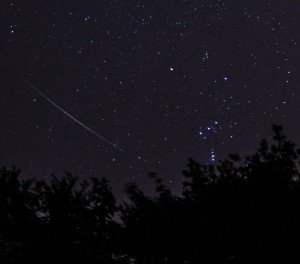Perseid Storm
 Observers are looking forward to an annual astronomical event late Tuesday night, August 12, into the morning of Wednesday, August 13, namely the Perseid meteor shower.
Observers are looking forward to an annual astronomical event late Tuesday night, August 12, into the morning of Wednesday, August 13, namely the Perseid meteor shower.
The Perseid meteor shower is usually amongst the most amazing astronomical events of the year, second only to the Geminids occurring around mid-December.
The Perseid meteors are the cosmic debris and rubble left behind in the orbital path of Comet Swift-Tuttle as it barrels around the solar system.
The time to watch in Greece will be from late Tuesday night into early Wednesday morning, looking towards the northeastern sky.
General rules for Perseid-watching:
No special equipment, or knowledge of the constellations, needed.
Find an open sky to enjoy the show, as an open sky is essential because these meteors fly across the sky in many different directions and in front of numerous constellations.
Give yourself at least an hour of observing time, for these meteors in meteor showers come in spurts and are interspersed with lulls. Remember, your eyes can take as long as 20 minutes to adapt to the darkness of night. So don’t rush the process.

